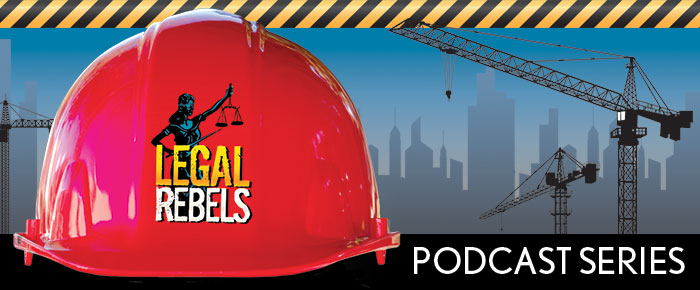
The legal professional lacks diversity. In other news, the sun is hot, law school is expensive and junk food is bad for you.
For the longest time, one of the staples of any courtroom has been the stenographer. Typing on a small machine that produced a seemingly random series of letters onto a small strip of paper about the same size as what cash registers use to produce receipts, being a court reporter required extensive training and superhuman attention span. One missed sentence or one inaccurate transcription and the entire trial record could be compromised.
It’s that time of year again. The ABA’s annual technological showcase—the ABA Techshow 2024—starts Feb. 14 and runs through the weekend in Chicago at the Hyatt Regency Chicago.
The impact for people clearing their criminal records can be life-changing, leading to long-term employment and financial security. And research shows that it also helps prevent recidivism. But the path to expungement is not always easy, requiring people with criminal records to navigate an unfamiliar, costly and drawn-out process. That’s where lawyer Noella Sudbury comes in.
As 2023 draws to a close, the Legal Rebels Podcast looks at the top stories in legal technology for the year.
In the past decade, influencer culture has exploded. However, content creation is not just about Gen Zers and millennials promoting new brands, hot products and lifestyle choices.
A lot has been made about how generative artificial intelligence has already changed many aspects of the legal industry. Heck, we’ve already done a few shows on this very topic.
Thanks to the COVID-19 pandemic, working from home and communicating and collaborating via real-time communication tools has become the norm for many law firms and offices.
For decades, lawyers who worked in BigLaw could expect some version of the following: Work long hours, including nights and weekends, with minimal free time, giving up almost all semblances of a social life. The reward: money and a potential partnership. And if you didn’t like it, there was the door. And if you were having mental health or wellness issues, then suck it up and deal with it.
Large language models such as ChatGPT are all the rage these days. A lot of commentators, legal professionals, lawyers and media outlets, including this podcast, have spent a lot of time examining this game-changing technology.
“The regulation of artificial intelligence (AI) in the United States has been a topic of growing concern and discussion in recent years. As AI technology continues to advance and become more integrated into various aspects of society, policymakers and lawmakers have recognized the need for a regulatory framework to address its potential risks and ensure responsible development and deployment.
There are plenty of judicial analytics and litigation prediction tools on the market. They may have differences in execution and focus, but the general rule of thumb is that they look at a judge’s past rulings and opinions to predict how that judge might rule on a similar motion or case in the future.
Many of us still get a chill running down our spines when we hear about bank failures and bailouts. After all, it was less than 15 years ago when we went through one of the worst economic disasters in history, and institutions such as Bear Stearns, Lehman Brothers Inc., American International Group Inc. and others became famous for the wrong reasons. The Great Recession took years to recover from, and some of its effects can still be felt to this day.
In November, when OpenAI unleashed the newest, most advanced version of its chatbot, ChatGPT, it immediately captured the imagination. As we’ve covered on this podcast, ChatGPT represents a major leap forward for generative artificial intelligence in that it can converse with and respond to users in a natural, almost humanlike way. So far, it’s been a hit.
One of the biggest and longest-running legal technology shows in the country, the ABA Techshow, is right around the corner. From March 1 to 4, thousands of lawyers, legal professionals and vendors will descend upon Chicago to talk about technology.
For some academics, researching, writing, editing and publishing a scholarly piece of work can take months, if not years, of painstaking effort, diligent commitment and rage-inducing frustration. In December, Andrew Perlman, the dean of the Suffolk University Law School and the inaugural chair of the governing council of the ABA Center for Innovation, authored one in less time than it takes to watch an episode of the Game of Thrones prequel series House of the Dragon.
What are legal operations? According to the Corporate Legal Operations Consortium, legal ops can be loosely defined as a “set of business processes, activities and the professionals who enable legal departments to serve their clients more effectively by applying business and technical practices to the delivery of legal services."
Four years ago, Damien Riehl, like many others, was quite bullish about the future of autonomous vehicles. The potential of the technology was obvious: No more worrying about someone trying to text and drive, no more need for drunken driving checkpoints, and no more danger of falling asleep at the wheel.
The metaverse is all the rage these days. Users can enter a virtual world where they can interact with people from all parts of the physical world, play games, engage in commerce and do a lot of other things. Think Ready Player One, or for older folks, think The Matrix movies, Total Recall or even Disclosure.
The next time you go to a website, find the customer service tab and enter a live chatroom with an assistant tasked with answering your questions and helping you with your issues, the chances are that you’re not actually talking to a human.